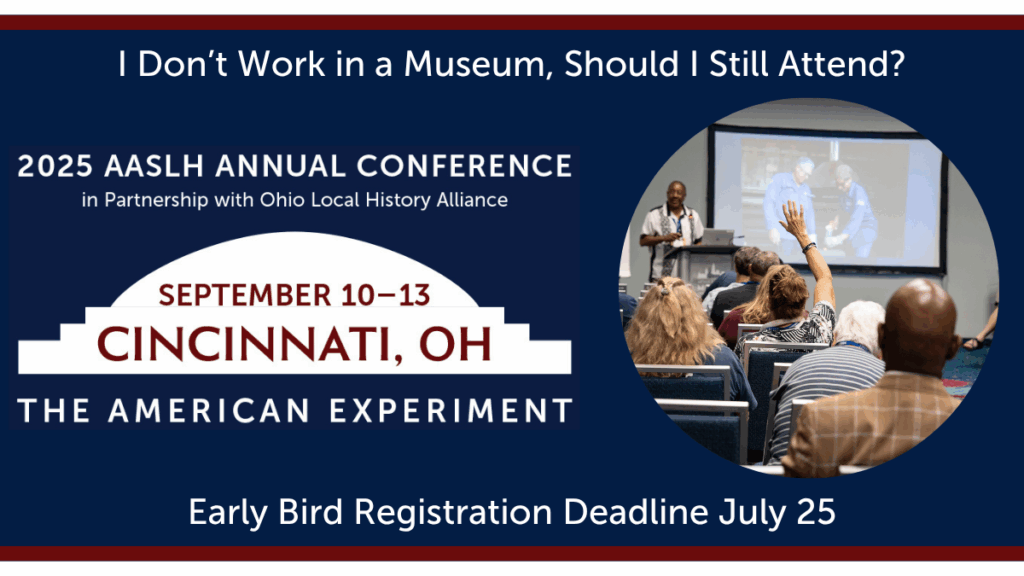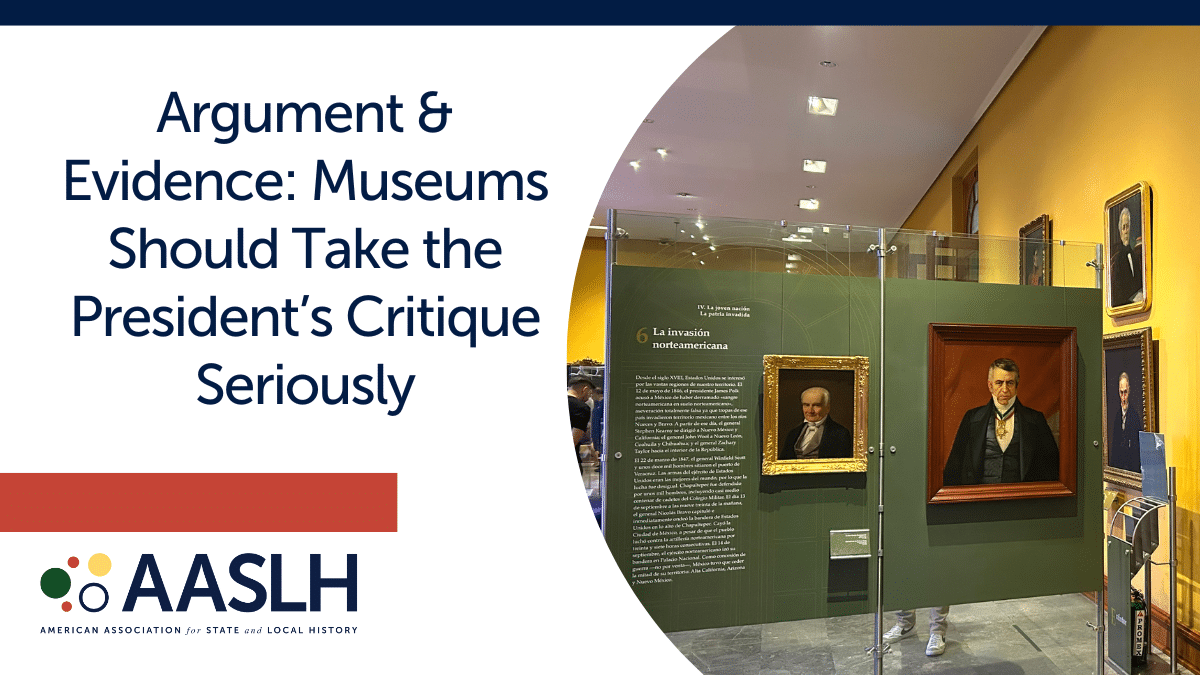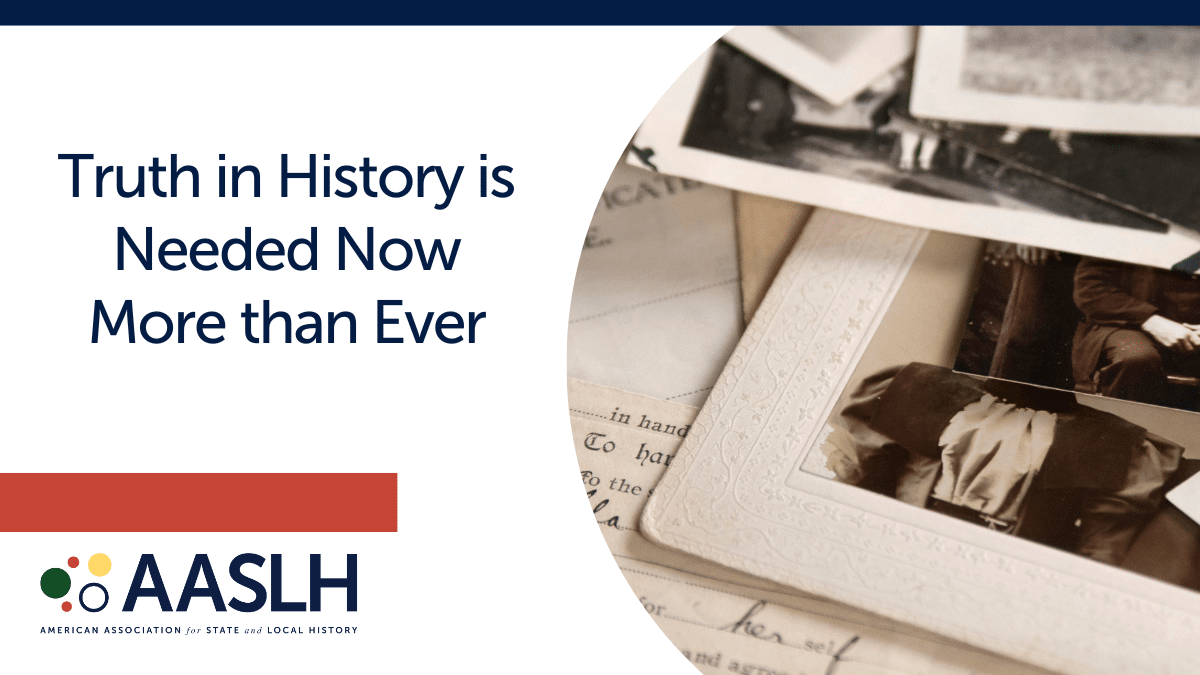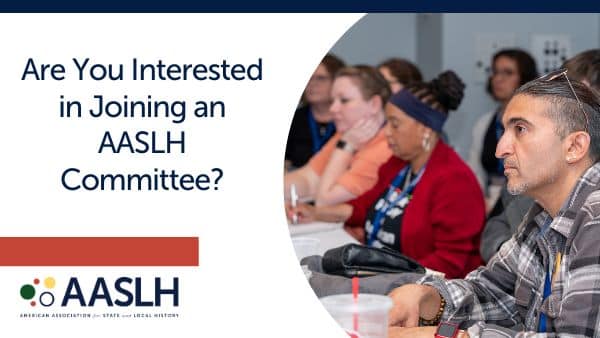
Save on registering before the Early Bird Deadline on June 25. AASLH members receive the lowest registration rates.
Register for the Conference | Program and Conference Info | Become A Member
By Bethany L. Hawkins
Thanks to AASLH’s National Census of History Organizations, we know that there are more than 21,000 history organizations in the United States. We also know that many of those history organizations do not own or operate a museum. People often ask if they can attend the AASLH Conference if they do not work in a museum. The answer is always an enthusiastic “Yes!” There are several interesting sessions that volunteers and employees of local historical societies, consultants, academic historians, and more will learn from at the 2025 conference in Cincinnati.
Here are some sessions and activities AASLH staff recommends for history practitioners who do not work in a museum:
Cracking the Code: The Secret to Fundraising Success (Wednesday, September 10, 9 a.m.-5 p.m., $95): In this full-day workshop, participants will unlock the mysteries of successful fundraising. Discover keys to relationship-building, creating achievable goals, and boosting efficiency in your donor programs. Through hands-on activities, group discussions, and expert insights, you’ll crack the code on fundraising challenges and inspire individual giving. Revolutionize your approach and leave with a personalized roadmap to success! Lunch is included.
Congress’s 40-Year Experiment with National Heritage Areas (Thursday, September 11, 8:30-9:45 a.m.): Created by Congress, National Heritage Areas (NHAs) blend cultural heritage, recreation, and economic development. This session explores NHAs as resources for public history, focusing on community-based storytelling, heritage preservation, education, and collaborative experiments, highlighting their role in elevating community voices and inspiring unique partnerships between communities, organizations, and federal agencies.
Sharing LGBTQ+ Stories Through Historical Markers and Monuments (Thursday, September 11, 2-3:15 p.m.): LGBTQ+ stories have largely been excluded from historical marker programs. An ambitious three-year project called Marking Diverse Ohio aims to change that. Join in a gallery walk of 10 new Ohio historical markers in the project and learn about the successes and challenges of sharing LGBTQ+ stories through historical markers.
Meet Your 250 State Commission (Thursday, September 11, 3:15-4:15 p.m.): Are you looking for inspiration, resources, or guidance on how to observe the U.S. 250th anniversary in your state? Connecting with your state 250th commission is a great place to start. Representatives from various state commissions will be available to answer questions and meet local planners.
(Re)designing Volunteer Programs for the Future (Thursday, September 11, 4:15-5:30 p.m.): Volunteerism has been a part of the American experiment since almost the very beginning. Today, many history organizations rely on volunteer contributions. As volunteerism evolves, how do we establish or re-form our programs to create opportunities that serve both our institutions and people who want to help us?
Giving Voice Through Historic Records (Friday, September 12, 8:30-9:45 a.m.): This session will include two case studies illustrating how research in archival and government records helped tell untold stories. In Minnesota, public history researchers, documentarians, and museum leaders worked in tandem to narrate the history of racist housing deeds, illustrating how these early 20th-century restrictions laid the foundation for contemporary racial disparities in Minneapolis and its surrounding communities. In northern Kentucky, migration of Black families across the Ohio River to Cincinnati and other large cities across the country left a void in the historical record. Researchers will present lessons learned in telling their stories.
Program Evaluation: Why? When? How? YES! (Friday, September 12, 11 a.m.-12:15 p.m.): Program evaluation helps us make informed choices about how to deploy our resources to serve audiences. This session provides historic site staff with a foundational introduction to evaluation with specific focus on needs of smaller organizations. During the session, participants will develop a preliminary plan for evaluating a program at their site.
History: Essential, Urgent, Present, and Future (Friday, September 12, 2:15-3:30 p.m.): The field has been talking for years about history needing to be relevant. That conversation has been useful, and the outcomes needed, but we may have lost sight of history’s deep necessity. This session will present four perspectives on the essentialness of history to individuals, communities, and society followed by a time of facilitated, active, collective exploration among participants. Join presenters in this mashup of lightning round and conversation/provocation session formats, with the goal of revealing deep purpose and energizing us all with renewed clarity and determination.
Bridging Divides: Navigating Challenging Histories Through Community Engagement (Saturday, September 13, 9-10:15 a.m.): Local historians face challenges exploring difficult topics. Presenters will describe experiences and techniques they used to reimagine walking tours, present a photography exhibit by a Somali photographer, and document the Latino community. They will share strategies to reframe conversations and spark dialogue, enabling visitors to thoughtfully engage with challenging histories.
Sharing U.S. History Knowledge with the World (Saturday, September 13, 10:45 a.m.-noon): Whether it’s on your phone, through a digital assistant, or as part of a new A.I. model, Wikipedia content pervades our lives. A group of historians recently participated in a special series of Wiki Education’s Scholars and Scientists courses, aimed at improving Wikipedia’s coverage of American history ahead of the semiquincentennial. Presenters will discuss their participation in the program, describe future plans to continue improving Wikipedia’s coverage of American history in advance of the 250th anniversary, and describe how attendees of the conference are able to participate.
Register for the Conference | Program and Conference Info | Become A Member



